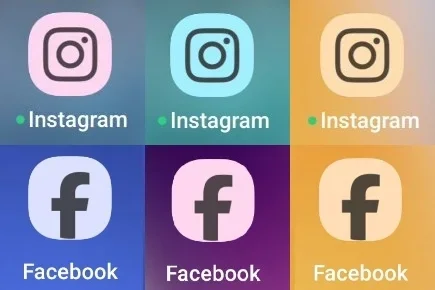Google's mandate eliminates "ugly" Android home screens
Android app developers must agree to themed app icons, which is mandated by Google under its Developer Distribution Agreement.

On Tuesday, Google announced that it had made a change to its Google Play Developer Distribution Agreement (DDA). This change forces all Android app developers to support themed app icons. With the change, those who own an Android phone will be able to use a unified theme made up of one color taken from the phone's wallpaper. Google felt that it had to issue a mandate because many developers failed to voluntarily support themed icons when they were first introduced in Android 13 as an optional feature in 2022.
How Google decided to deal with developers unwilling to have their Android app icon changed
Google has revised the language in section 5.3 of the Developer Distribution Agreement (DDA) that gives Android app developers a "nonexclusive, worldwide, and perpetual license" to change the colors and add themes to the app icons. Google had to deal with developers unwilling to have their Android app icon changed. By making the agreement mandatory, Google is able to deal with developers not interested in altering their branding.
Are you glad to see Google mandate this?
Yes. I will be able to have a unified themed home screen.
53.88%
No. I don't like the idea of forcing developers to do this.
25.43%
I don' t really care.
20.69%
But here's the thing. All apps listed in the Google Play Store must comply with the altered terms, and starting Monday, September 15th, the new terms apply to all new developer accounts. By October 15th, all existing developers who want to continue to have their apps listed in the Google Play Store must accept the revised agreement. Since the developers are supporting themed icons, they must provide Google with a monochromatic app icon in addition to their standard app icon.

Examples of themed icons, these for Instagram and Facebook. | Image credit-PhoneArena
With the mandate, Android users can enjoy a "consistent and cohesive home screen experience," and the system can now give all app icons a uniform theme, even those app icons that didn't support the feature before. To repeat the bottom line goal, if an Android user enables themed icons, "the system uses the monochromatic icon to apply a color tint based on the system's wallpaper and theme."
Once they sign the agreement, developers will no longer be able to opt out of the themed app icon system, which removes their control over part of their app's branding on the home screen. Developers who have yet to do so will have to create a monochromatic icon and provide it to Google in order to meet the new requirement.
What will Android users experience because of the new agreement?
Google says that all Android users will be able to create "a more unified and visually pleasing home screen." Before the mandate, Android users had to deal with a situation where some of the app icons would remain unthemed and some would be themed, creating an unbalanced and ugly look.
I rarely have used themed apps with my Pixel, but I can understand why Google feels the need to do this. A home screen that is unbalanced looks awful, wouldn't you agree? With the mandate, all Android developers must adhere to Google's rules or else face getting unlisted from the Play Store.
Follow us on Google News













Things that are NOT allowed:
To help keep our community safe and free from spam, we apply temporary limits to newly created accounts: